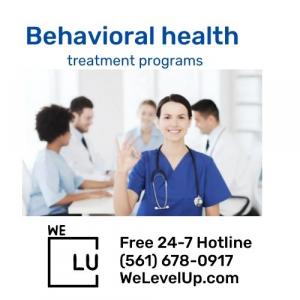National Drug & Alcohol Facts Week® will be held March 21-27, 2022.

Join NIDA for National Drug and Alcohol Facts Week and help share facts about drugs, alcohol, and addiction in your community.

On National Drug and Alcohol Facts Week, scientists and other experts counteract the myths about drugs and alcohol that people get from the internet, social media, TV, movies, music, or from friends.
During National Drug and Alcohol Facts Week, healthcare providers, scientists, educators, and community members partner to improve drug and alcohol awareness.
DEERFIELD BEACH, FLORIDA, UNITED STATES, March 18, 2022 /EINPresswire.com/ — What is National Drug and Alcohol Facts Week?
National Drug and Alcohol Facts Week®, or NDAFW, is an annual, week-long, health observance that inspires dialogue about the science of drug use and addiction among youth. It provides an opportunity to bring together scientists, students, educators, healthcare providers, and community partners—to help advance the science so that we can improve the prevention and awareness of substance abuse in our own communities and nationwide.
It was launched in 2010 by scientists at the National Institute on Drug Abuse (NIDA) to stimulate educational events in communities so people can learn what science has taught us about drug use and drug addiction. The National Institute on Alcohol Abuse and Alcoholism became a partner in 2016, and alcohol has been added as a topic area for the week. NIDA and NIAAA are part of the National Institutes of Health. [1]
“Educational campaigns like NDAFW are vital to combat the drug and alcohol abuse epidemics sweeping this country. While treating addiction is important, preventative education is just as important.”, Ryan Zofay – Founder of We Level Up Personal Development.
National Drug and Alcohol Facts Week® is a service mark of the U.S. Department of Health and Human Services (HHS). The National Drug and Alcohol Facts Week® design mark, and associated trade dress are registered trademarks of HHS. SHATTER THE MYTHS® is a trademark and service mark of HHS.
How do I Participate in National Alcohol and Drug Facts Week?
National Drug and Alcohol Facts Week is an opportunity for individuals to SHATTER THE MYTHS® about drugs and drug use. Ordinary people, scientists, and other experts come together to discuss how drugs affect the brain, body, and behaviors, in community and school events all over America.
The DEA supports the National Institute on Drug Abuse (NIDA) and the National Institute on Alcohol Abuse and Alcoholism (NIAAA) during their annual National Drug and Alcohol Facts Week (NDAFW). The week-long observance will be held during the spring.
How can I use social media to promote my NDAFW event?
Tweet, blog, or update your Facebook status to help spread the word about your NDAFW event. Share information with your family and friends that will SHATTER THE MYTHS about drugs and substance use disorder. If you tweet about NDAFW, be sure to use our hashtag #NDAFW.
Who are the Federal Partners for National Drug and Alcohol Facts Week?
National Institute on Drug Abuse and National Institute on Alcohol Abuse and Alcoholism have many federal, state, and local partners working together to get the facts about drugs to communities all over America. Partners include:
Agency for Healthcare Research and Quality
Centers for Disease Control and Prevention
Department of Agriculture/4H
Department of Housing and Urban Development
Food and Drug Administration
Indian Health Services
National Institute of Mental Health
Office of Juvenile Justice and Delinquency Prevention
Office of Minority Health
President’s Council on Fitness, Sports, and Nutrition
USA.gov
How can you find treatment or support programs?
Choosing to stop using drugs or alcohol is not easy, but it can be done. Quitting will improve your health, well-being, and relationships with others.
Different types of substance use require different types of addiction treatment. Based on your level of dependence, you may need medical treatment and/or psychological therapy to help you quit. Talk with your health care provider to explore treatment options that are specific to your type of substance use.
Peer support and faith-based recovery groups may also help you manage substance use and dependence.
Alcohol Dependence
Continued excessive alcohol consumption can lead to the development of dependence that is associated with a withdrawal syndrome when alcohol consumption is ceased or substantially reduced. This syndrome comprises physical signs as well as psychological symptoms that contribute to distress and psychological discomfort. For some people the fear of alcohol withdrawal symptoms may help perpetuate alcohol abuse; moreover, the presence of withdrawal symptoms may contribute to relapse after periods of abstinence.
Withdrawal symptoms may vary significantly from one person to another but may include any of the following physical and psychological symptoms:
Physical Withdrawal Symptoms
Shaky hands
Headache
Nausea
Vomiting
Sweating
Racing heart
High blood pressure
Fever
Shakiness
Dilated pupils
Appetite loss
Pale skin
Tremor
Seizures
Psychological Withdrawal Symptoms
Anxiety
Insomnia
Confusion
Irritability
Feeling depressed
Fatigue
Mood swings
Inability to think clearly
Nightmares
Extreme agitation
Hallucinations (feeling, seeing, or hearing things that aren’t there)
With the help of a team of experts, withdrawal symptoms may be alleviated. However, the withdrawal symptoms that you may suffer from without help include:
Seizures
Physical tremors
Alcohol cravings
Hallucinations
Increased agitation and anxiety
Increased blood pressure
Mood swings
Fever, sweating, and extreme headaches
Increased heartbeat
Short-Term Health Risks
Excessive alcohol and drug use have immediate effects that increase the risk of many harmful health conditions. These are most often the result of binge drinking and include the following:
Injuries, such as motor vehicle crashes, falls, drownings, and burns.
Violence, including homicide, suicide, sexual assault, and intimate partner violence.
Alcohol poisoning, a medical emergency that results from high blood alcohol levels.
Risky sexual behaviors, including unprotected sex or sex with multiple partners. These behaviors can result in unintended pregnancy or sexually transmitted diseases, including HIV.
Miscarriage and stillbirth or fetal alcohol spectrum disorders (FASDs) among pregnant women. [3]
Long-Term Health Risks
Over time, excessive drug or alcohol use can lead to the development of chronic diseases and other serious problems including:
High blood pressure, heart disease, stroke, liver disease, and digestive problems
Cancer of the breast, mouth, throat, esophagus, voice box, liver, colon, and rectum
Weakening of the immune system, increasing the chances of getting sick
Learning and memory problems, including dementia and poor school performance
Mental health problems, including depression and anxiety
Social problems, including family problems, job-related problems, and unemployment
Alcohol use disorders, or alcohol dependence, substance use disorders, or drug dependence
By not drinking too much, you can reduce the risk of these short- and long-term health risks.
Alcohol Treatment
Programs, services, and treatments vary. We Level Up rehab center offers inpatient substance abuse treatment. Offering co-occurring treatments. We Level Up rehab center treats the entirety of addiction and behavioral health disorders including their secondary corresponding illnesses to improve long-term recovery outcomes. Get a free health assessment and find out what treatment options are most suitable for you. Call to learn more.
There are an estimated 17 million adults and adolescents with alcohol use disorder (AUD). Sadly, the National Institute on Drug Abuse estimates that only 1 of every ten seek or receive any treatment. Part of the reason for such dismal numbers is that most individuals aren’t aware that they have a drinking problem. [2]
Alcoholism is a severe and debilitating disease that will progressively get worse the longer it goes untreated. Exhibiting even one of these behaviors can be indicative of potentially dangerous alcohol addiction. An alcohol rehabilitation center can help mitigate the unpleasant withdrawal effects and help with behavioral therapy for this chronic relapsing brain disorder.
Drug and alcohol rehab centers serve several functions related to addiction treatment and recovery. Recovery starts with getting sober and is a part of your life indefinitely. And then, after you stop drinking or using, you still have a lifelong challenge of staying clean and sober. So, you will need a solid commitment, which is where a drug and alcohol treatment center is a goldmine of support and information. Providing therapy, education, and support for recovery after treatment is just as crucial for a treatment center, if not more so than helping you get sober. The major of programming at any rehab center is focusing on building skills and habits that encourage long-term sobriety.
Medical Detox
Alcohol and drug detox can be dangerous, especially if it is done without the help of a professional. Delirium Tremens and other withdrawal symptoms that may afflict the patient that is detoxing are dangerous and may even be fatal. It is advisable to detox in a rehab center where you have access to experienced professionals who can manage any complications of withdrawal. The medically supervised detox processes allow the body to process the substance of abuse that is still in the system and gently wean the body off its dependence. It is the first stage of addiction treatment and one you should seek before your addiction gets worse.
Substance use disorders can involve illicit drugs, prescription drugs, or alcohol. Opioid use disorders have become especially problematic in recent years. Substance use disorders are linked to many health problems, and drug overdoses can lead to emergency department visits and deaths.
Effective treatments for substance use disorders are available, but very few people get the treatment they need. Strategies to prevent substance use and help people get treatment can reduce drug and alcohol misuse, related health problems, and deaths.
Through a variety of free resources and National Drug and Alcohol Facts Week events, the NIDA and NIH deliver information to improve the overall health and well-being of our communities across the country. Healthcare providers, scientists, students, educators, and community members partner to improve prevention and awareness of drug and alcohol abuse.
If you, your friend, or your family need help with alcoholism or drug addiction, contact We Level Up addiction rehab center today.
We Level Up treatment centers network locations include:
1. We Level Up New Jersey treatment center
2. We Level Up Florida alcohol treatment center
3. We Level Up West Palm Beach treatment center
4. We Level Up Fort Lauderdale depression center
We Level Up’s treatment centers coming soon locations are to include:
5. We Level Up California rehab center
6. We Level Up Washington behavioral health center
About We Level Up Treatment Centers
WeLevelUp is a renowned treatment center that applies evidence-based treatment modalities along with holistic programs to improve client recovery outcomes. Combining traditional elements of SUD treatment, including supervised medical detox recovery coupled with intensive behavioral rehab. Offering cutting-edge advanced therapies, WeLevelUp is an accredited dual diagnosis drug and alcohol addiction and mental health care provider. Fully integrating co-occurring conditions into their programs, they provide a world-class comprehensive continuum of care through each stage of the treatment process. Their top-notch doctors, therapists, and counselors leverage the power of science to help clients succeed in rehab recovery.
WeLevelUp provides best-in-class treatment in multiple locations, with amenities and activities designed to reinforce recovery success metrics. Each client receives lifetime alumni support post inpatient treatment along with family resources to help maintain recovery momentum, even once they depart their treatment facilities. Their teams of highly trained professionals are dedicated to each client’s success.
WeLevelUp.com is A-rated by the BBB and is a confirmed and verified business.
About Ryan Zofay
Ryan Zofay is most passionate about sharing his practical lessons that change lives. As a successful entrepreneur and motivational speaker, he teaches development strategies that measurably improve performance, connection, and overall mindset.
Through Ryan’s recovery success, he’s learned how to be a licensed interventionist. He still finds time to give back and help inspire whenever there is a need for intervention.
Ryan Zofay is a successful entrepreneur and motivational speaker. He teaches personal development strategies that measurably improve performance, connection, and mindset. Using the teachings of his own successes and tribulations, Ryan has a unique ability to facilitate deep change for individuals and organizations.
Ryan’s passion and enthusiasm readily spill over to his listeners. His own life accounts, amazing comeback journies, along with the wisdom he developed, help formulate instructions to clients on how to realize their goals. Visit the Ryan Zofay Events page to learn more.
Sources
[1] National Drug and Alcohol Facts Week® – National Institute on Drug Abuse – https://welevelup.com/rehab/national-drug-and-alcohol-facts-week/
[2] Alcohol Use Disorder – National Institute on Alcohol Abuse and Alcoholism – https://welevelup.com/rehab/symptoms-of-alcohol-use-disorder/
[3] Alcohol Use and Your Health – Centers for Disease Control and Prevention – https://welevelup.com/rehab/alcohol-use-in-families/
[4] About WeLevelUp locations https://welevelup.com/location-2/ – https://welevelup.com/locations/
[5] About Ryan Zofay – https://ryanzofay.com/about/ Ryan Zofay – YouTube and https://welevelup.com/coaching/ryan-zofay/
Ryan Zofay
We Level Up
+1 561-678-0917
email us here
Visit us on social media:
Facebook
Twitter
LinkedIn
Other



